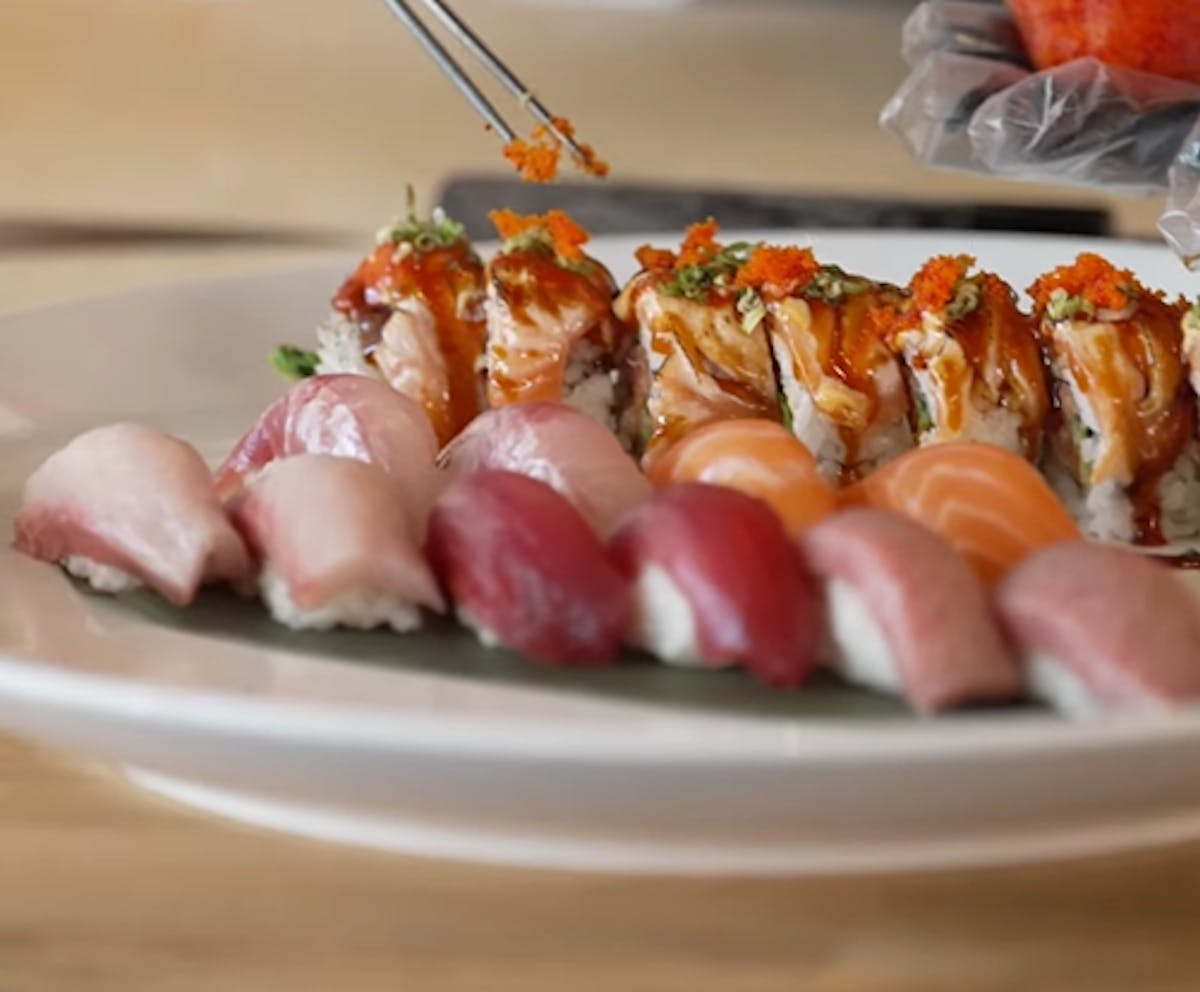The Difference Between Sushi Rolls vs. Maki Rolls

Sushi has taken the culinary world by storm, becoming a favorite dish for many people. As its popularity has surged, so has the variety of sushi available. Among the most popular forms are sushi rolls and maki rolls, often used interchangeably. Understanding these two differences can enhance your appreciation of this cuisine, especially when dining out. Continue reading to learn more about the differences between sushi and maki.
What is Sushi?
Sushi is a Japanese dish that combines vinegared rice with various ingredients, including seafood, vegetables, and occasionally tropical fruits. It is typically served with soy sauce, wasabi, and pickled ginger. The term "sushi" encompasses a wide variety of preparations and presentations, not limited to rolls alone.
Sushi Rolls vs. Maki Rolls
It's essential to delve into their definitions and preparation styles to comprehend the distinction between sushi rolls and maki rolls.
Sushi Rolls
Sushi rolls are a broader category encompassing various styles of rolled sushi. The term "sushi roll" generally refers to any type of sushi that is rolled using nori (seaweed) and rice, encasing various fillings. Sushi rolls can be customized with a wide array of ingredients, ranging from raw fish like tuna and salmon to cooked ingredients like shrimp tempura or even non-traditional items like cream cheese and avocado.
Maki Rolls
"Maki" is a specific type of sushi roll and is derived from the Japanese word "maku," which means "to roll." Maki rolls are what many think of when they hear the term "sushi roll." They are made by spreading sushi rice on a sheet of nori, layering it with various fillings, and rolling it using a bamboo mat called a "makisu." Maki rolls are typically cut into six or eight bite-sized pieces. Maki rolls are more traditional and usually contain more straightforward, classic ingredients than some of the more innovative, fusion-style rolls seen in modern sushi restaurants.
Sushi at Saltwater Coastal Grill
For those looking to explore innovative sushi flavors, Saltwater Coastal Grill also collaborates with Chef Ismael Lucero Lopez of Casa Madai, a renowned Japanese-Mexican fusion concept. This collaboration introduces subtle twists to classic maki rolls, blending traditional ingredients with unexpected flavors like citrus aioli, crispy tempura elements, and smoky spice accents.
Our menu offers a variety of sushi rolls, blending classic techniques with creative twists. Whether you're after something light and refreshing or rich and indulgent, there's a roll that fits your cravings.
For those who love crunchy textures and bold flavors, our Crunchy Roll is a top pick, packed with crispy panko shrimp, creamy avocado, and a pop of tobiko for a little extra flair. The Dragon Roll also brings that satisfying crunch with tempura shrimp and crispy rice puffs, balanced by sweet soy reduction and buttery unagi.
If you're in the mood for spice, the Kiss on Fire Roll lives up to its name, featuring a trio of seared salmon, tuna, and yellowtail, plus jalapeño, scallions, and a hit of sriracha mayo. The Pacific Roll takes a more delicate approach, letting the freshness of yellowtail, avocado, and microcilantro shine with a drizzle of chili oil and sesame seeds.
For a roll that’s a little outside the box, the Saltwater Roll brings together honey crab, sweet potato, and cream cheese, wrapped in soy paper and topped with wasabi aioli and sweet soy reduction. It’s a fusion of sweet, savory, and creamy textures that make for an unexpected but satisfying bite.
We also serve classic options like the Spicy Tuna Roll, Philadelphia Roll, and California Roll, as well as vegetarian-friendly choices like the Mango Avocado Roll.
Dine at Saltwater Coastal Grill and Try Our Sushi or Maki Rolls!
While both sushi rolls and maki rolls are delightful ways to enjoy sushi, understanding their differences can enhance your dining experience. Sushi rolls offer a broad and sometimes creative spectrum of flavors and presentations, whereas maki rolls provide a more traditional and straightforward approach to sushi. Whether you're a sushi purist or an adventurous foodie, there's a roll-out there to satisfy your palate. So, next time you dine with us at Saltwater Coastal Grill, you'll know what to order to match your culinary preferences! For more information about sushi or what’s on our menu, give us a call at (877) 209-0159 or submit a contact form online.
